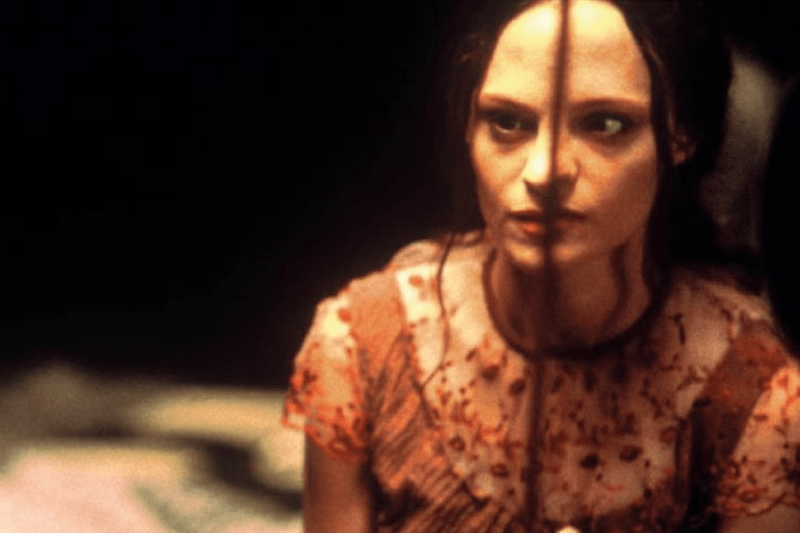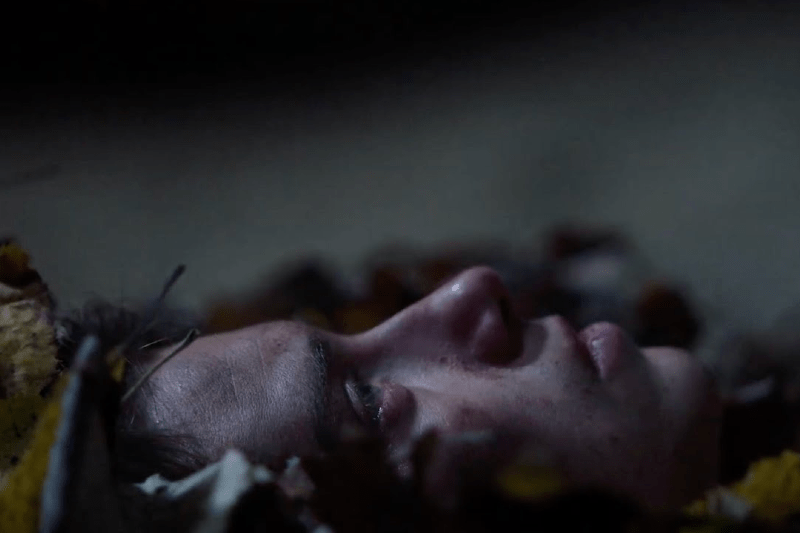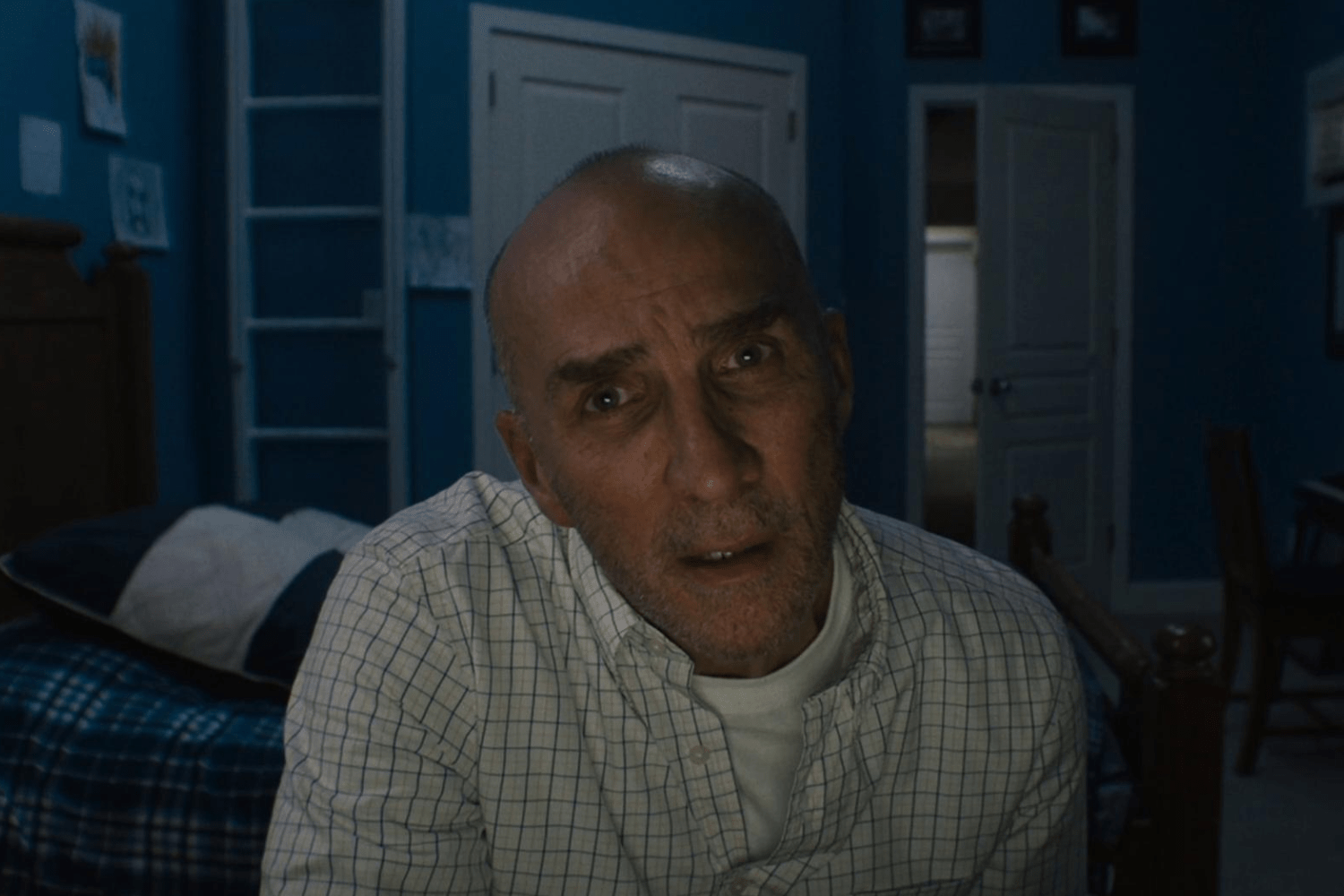Editorials
‘May’ Is a Grotesque Plea for Kindness
Uterus Horror is a subgenre of films that focuses on the experience of growing up with a female gender expression. These films capture the act of becoming an adult and coming into your sexuality, using horror to emphasize and/or act as a metaphor for those experiences. Columnist Molly Henery, who named and defined the subgenre, tackles a new film each month and analyzes how it fits into this bloody new corner of horror.
October 24th, 2024 | By Molly Henery

It’s October! That means it’s time to discuss one of my favorite Halloween Uterus Horror films, May. Released back in 2002, May was only the second feature film of writer and director Lucky McKee (The Woman, All Cheerleaders Die). As with many entries in this subgenre, the film didn’t have great box office success despite getting a fair amount of critical praise. Despite this, May is certainly one of McKee’s most iconic films, and it has garnered a cult following of devoted fans over the years.
The film centers on a young woman named May (Angela Bettis). May suffers from a lazy eye. As a child, she was forced to wear an eye patch to try and fix it, which led to her being ostracized by her peers. Her only “friend” is a doll she got as a gift from her mother (Merle Kennedy) as a child. The day she received the doll, May’s mother told her, “If you can’t find a friend, make one.” And yet, the doll was too perfect and too special to play with, so since her childhood May has kept the doll safely in a glass case.
As an adult, May’s situation hasn’t changed all that much. She now has glasses that help fix her lazy eye and is getting contacts that will do the same; she also has a job working as a veterinary assistant. Inside, though, she’s still the same lonely girl. Despite her age, it’s apparent she has lived a very sheltered, lonely life with no close friends or significant others, except of course her doll. However, everything changes for May when she first sets eyes on Adam (Jeremy Sisto), a local mechanic. Seemingly the first person May has been interested in, she becomes fixated on Adam, but more specifically his hands. After a couple of dates, Adam decides May is too weird for him and ghosts her. This is only the beginning of May’s downward spiral.
With every social interaction she has, it becomes more and more apparent that May isn’t great with people. She didn’t gain social skills most children do because she was an outsider. May’s mother wasn’t much help in that department either, giving her a doll instead of helping her find ways to make real friends to play with. Now, all grown up, May constantly turns inward when around people. She’s shy and awkward, but seeing Adam makes May want to be more social. Her desire forces her to try and be more outgoing, venturing outside her comfort zone just to get to know a guy. One can imagine how much effort it would take to put yourself out there, which means it hits May even harder when Adam thinks she’s a weirdo – a freak – and he wants nothing to do with her.
May quickly experiences her next bit of heartbreak. The receptionist at the vet, Polly (Anna Faris), has a flirtation with May. This time, May is trying to find human connection while also exploring her sexuality. Polly seems receptive to May’s eccentricities, but not long after sharing a kiss, Polly moves on to another woman. After that, May comes close to befriending a strange punk kid (James Duval) at the bus stop, but when he finds an unfortunate surprise in her freezer, he wants nothing to do with her. May is already a late bloomer, both in terms of social interactions and sexuality. She doesn’t have the years of love and friendships and heartbreaks that help a person mentally process these kinds of rejections. Meeting Adam and being rejected by him throws May into a state of turmoil, leading her to experiment with her sexuality, desperately trying to find human connection, and eventually turning to drastic measures just to feel seen.
Among the many things May learned from her mother, the most impactful seems to be the importance of beauty and perfection. Even when May was a child, her mother told her to hide the eyepatch under her hair if May wanted to make friends. This is why the doll is a great representation of the “values” instilled in May. Beauty is what gives a person value, and perfection is something to strive for above all else.
As May begins to try to connect with other people, she always fixates on one part of the person’s body: Adam’s hands, Polly’s neck, and Polly’s new girlfriend’s legs – even the punk kid’s arms – all catch May’s eye. Each person has one perfect piece, but the whole has flaws. Like mother used to say, “If you can’t find a friend, make one.” Between the constant rejection and the life lessons from her mother, it’s no wonder May takes those teachings a bit too literally.
On Halloween night, May dresses up in a homemade costume that makes her look just like her beloved doll. She then visits each person who has rejected her to collect her favorite piece of them. Upon returning home, she uses her sewing skills to assemble all the pieces into a perfect whole, but upon admiring her work May realizes her new friend can’t see her. May sacrifices one of her own eyes for the friend. She’s finally created the perfect companion and the only friend she’ll ever need.
Many viewers who watch May will empathize with the titular character. Between children being cruel, and the life lessons provided by her mother, it’s easy to see how May would end up as such a shy and socially inept adult. She clearly has no idea how to navigate human interactions, and it’s largely because she missed most of the important social milestones. Her sheltered existence means she doesn’t know how to process rejection or heartache; she doesn’t understand what’s socially appropriate, and she doesn’t even understand her own sexuality. All May wants is a friend, and after years of having no one but her doll, it’s no wonder the extreme lengths she was willing to go to for a sense of companionship.
McKee crafts a truly haunted piece of Uterus Horror with May. This intimate look into the mind of a fragile woman is compelling as is, but adding the horrors of dismembering people to collect their best parts, only to reassemble them into a perfect composite, is a disturbing way to emphasize her fractured state of mind. It’s obviously an extreme case, but May’s desire to be seen and loved is one most people can relate to on some level. It’s a cautionary tale not just for parents trying to raise caring, capable individuals, but it’s also a great reminder to be kind to those you interact with. You never know what they’re going through, or what they’re capable of.



